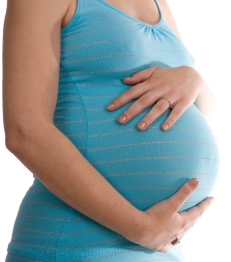A lot of time and money was just spent on Mother’s Day. The yearly ritual of “mom fever” means picking out fancy presents such as exotic flower arrangements, sparkling gemstones or free passes to a trendy spa.
But the sad truth for many women I see as patients is that material gifts are often what they need least.

As a specialist in high-risk obstetrics, I know that many women of reproductive age, because of limited resources, time or knowledge, don’t get adequate medical care of any sort until they are pregnant.
That means I diagnose a lot of new diseases in pregnant women. Some are specific to pregnancy, such as pre-eclampsia (a form of high blood pressure that exists only in human pregnancy, oddly enough). But I also diagnose many cases of diabetes, hypertension, dental abscesses, sexually transmitted infections (including HIV) and even cancer in pregnant women.
Most of my patients had these problems before their pregnancies; they either didn’t know or weren’t in a situation to get medical care.
On the one hand, this is exactly when prenatal care is a blessing. There are so many steps I can take when my patient and her developing fetus are most at risk.
We can control blood pressure to reduce the risk of maternal complications during pregnancy, and put patients on antiretroviral medications to reduce the risk of HIV transmission to their children during labor. We can also control high sugar to optimize the chance of a healthy pregnancy and delivery.
But on the other hand, this situation is also a curse. Because here’s another truth: the earliest day a woman finds out that she’s pregnant, through either a blood test or a urine test, she’s already been pregnant for about 14 days.
That means that doctors—when faced with pregnant patients with chronic illnesses—are always playing catch-up. For an expectant mother with diabetes, that means that a tiny, vulnerable fetus has been developing in an abnormally sugary environment, one that increases the risk of birth defects. With diabetes, as with most other chronic diseases, the key to the best possible outcome is entering the pregnancy as healthy as possible—and if you’re in my office with that positive urine pregnancy test, we may have already missed that opportunity.
So here’s what I want for my moms and moms-to-be: the gift of time and awareness and resources to take care of themselves earlier and better.
We do a great job of caring for mothers once we get the opportunity; let’s continue to work to make that opportunity happen before pregnancy, when it can really make a difference.

